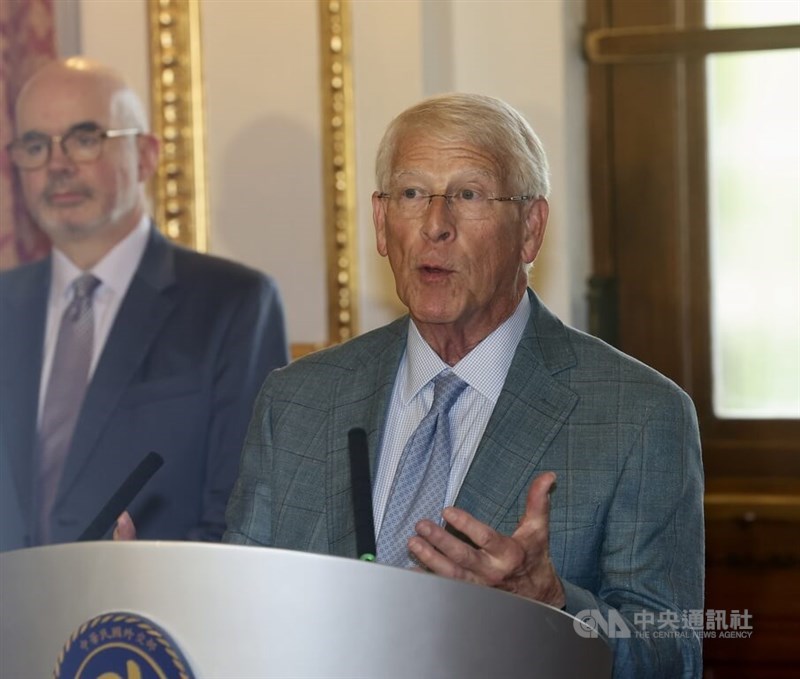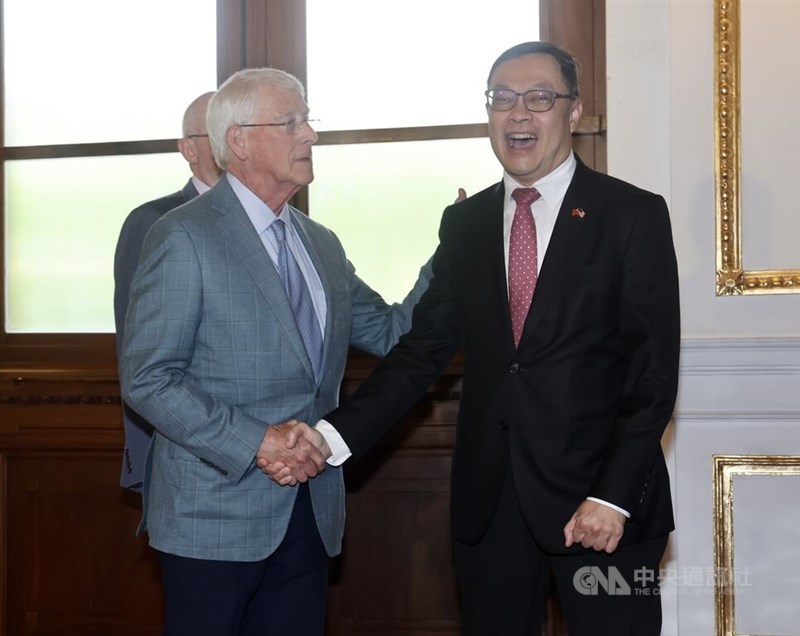Trade talks won't affect defense support for Taiwan: Visiting U.S. senator

Taipei, Aug. 30 (CNA) The visiting chair of the U.S. Senate Armed Services Committee, Roger Wicker, said Saturday that trade talks between Washington and other countries, including China, "in no way" affect Washington's defense support for "the sovereign rights of the Taiwanese people to enjoy their democracy."
The Republican senator told a news conference in Taipei that his two-day trip to Taiwan serves to "send a firm and strong message of friendship and determination that this country is separate and free and entitled to make its own decision."
Asked whether the Trump administration's engagement with Beijing and ongoing trade talks have any negative implications for Taiwan's interests, Wicker said that there are negotiations "around the world."
"The United States manufactures a great deal of things, and we enjoy selling them around the world," Wicker said.
"That in no way, in no way affects the defense alliance and friendship and determination that the United States has to be a friend to the sovereign rights of the Taiwanese people to enjoy their democracy into the future and make their own decision," he added.
Trade talks between the United States and China are ongoing, with both sides seeking to resolve long-standing disputes over tariffs and market access, as the current 90-day tariff truce -- extended by President Donald Trump on Aug. 11 -- runs through Nov. 10, raising questions about their potential impact on Taiwan.
On how the United States would enhance cooperation with Taiwan in the joint production of weapons, Wicker said such joint efforts will take place but will depend on the skills available "both on this side of the Pacific Ocean and ours."
"Actually, we are open to suggestions and innovation in that regard," he added.
Regarding steps Taiwan should take to strengthen its defense capability, Wicker said those decisions will be made by the leadership of Taiwan, which he described as "an independent, sovereign democracy."
"But we do appreciate the consultation that our two countries have together," he said, adding that the U.S. and Taiwanese militaries "understand each other" and "are working together every day."
"There are forces in this region that believe they can impose their will on a separate nation that is determined to chart its own course for the future, as it has for many, many years," he said, referring to China's attempts to pressure Taiwan.
"Those forces are mistaken, and we will continue to develop the weapons necessary to make that point, both from the United States' standpoint and Taiwan's."

Scheduled to leave Taiwan later in the afternoon, Wicker, accompanied by fellow Republican Senator Deb Fischer (R-NE), also a member of the committee, arrived in Taipei Friday morning. The visit was not made public until about an hour before the plane carrying them landed at Taipei Songshan Airport.
He said during the news conference that the trip was "very meaningful," adding that he and Fischer had a "very comprehensive conversation" with President Lai Ching-te (賴清德) on Friday afternoon.
"We met with members of the military and various ministers in the administration, so we've learned a lot," he added.
While Taiwan's Ministry of Foreign Affairs described the delegation's visit as "demonstrating the rock-solid support for Taiwan and the Taiwan-U.S. partnership in the U.S. Congress," its counterpart in China expressed "strong dissatisfaction."
Guo Jiakun (郭嘉昆), spokesperson for China's Ministry of Foreign Affairs, said at a regular news briefing on Friday that the visit to Taiwan "seriously violates the one-China principle" and sends a "gravely wrong signal" to "Taiwan independence" separatist forces.
- Politics
TPP defense act placed on its priority list for new legislative session
02/04/2026 10:39 PM - Business
Taiwan's Starlux Airlines to launch flights to Prague on Aug. 1
02/04/2026 09:28 PM - Business
Taiwan companies optimistic on enclosed-cabin scooter plan
02/04/2026 08:58 PM - Cross-Strait
MAC slams '1992 Consensus' push after CCP, KMT top figures meet in Beijing
02/04/2026 08:43 PM - Society
'Shanlan' tourism train arrives in Tainan
02/04/2026 08:37 PM